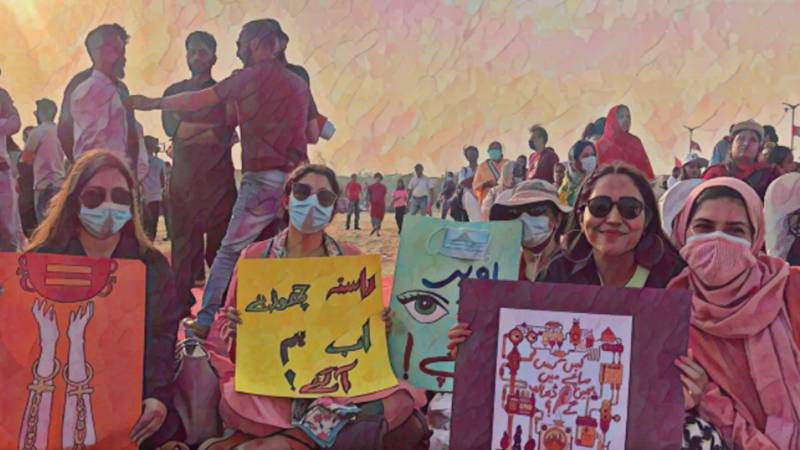
Gender discrimination: Pakistani women are at the apocalypse
The global women's day, 8 March, has witnessed a systematic and malicious campaign that starts on mainstream and social media, declaring that Pakistan does not need any feminism or women’s empowerment movement. It is argued that their rights are already protected according to Islamic and Oriental values. Experts on gender discrimination in socio-political and economic domains, nonetheless, reckon that women, that is to say half of the country, are profoundly marginalised in society.
According to the World Economic Forum's “The Global Gender Gap Report, 2023,” Pakistan stands at 142 out of 146 states – which reflects the awful conditions of women. The Women Peace and Security Index, issued by the Georgetown Institute, another global watchdog, also lays out the vulnerable and skewed situation facing Pakistani women and girls, declaring that Pakistan is a dangerous place for females to live in.
Women are the primary targets of domestic violence, as indicated by the National Commission for Human Rights report of 2020, which indicates that over 90% of women encounter such abuse at least once in their lifetime. They not only endure physical agony and psychological anguish but also risk losing their lives at the hands of male partners who enjoy societal recognition. Despite the formulation of various laws by the Federal Government and provincial authorities to combat gender-based violence, these efforts have faltered due to social, legal, and administrative deficiencies.
In the political arena, women's participation remains subdued. Their roles as political activists and representatives are usurped owing to societal insecurities and unwelcoming attitudes. Political parties, dominated by traditional mindsets, also keep women at bay to safeguard their own political interests. The Aurat Foundation has underscored that major political parties have failed to comply with the obligations outlined in the 2017 Election Act, particularly regarding the allocation of five percent of tickets to women for general seats. These instances underscore the political subjugation of Pakistani women in the contemporary era—a harsh yet undeniable reality.
Economically, women find themselves reliant on the opposite gender from one end to the other. They lack secure job opportunities, and the state has not adequately equipped them educationally and in terms of skills, rendering them more of a liability than an asset to society. According to the Global Gender Gap Report of 2023, Pakistan has achieved only 15 percent economic parity. This economic vulnerability not only jeopardizes women's roles in domestic affairs such as childbirth and consent in marriage but also often forces them to sacrifice their careers for marriage due to family and social pressure.
Instances of harassment of women in the workplace and other social settings are rampant. They are objectified for sexual gratification, with men behaving as predators and exploiting women emotionally, financially, and sexually. Professors and supervisors often prey on female students and researchers in universities and other educational institutions. The well-known and distressing accounts of harassment at Islamia University Bahawalpur serve as clear evidence of the vulnerabilities faced by this marginalized group. Unfortunately, these incidents may only represent the tip of the iceberg. Ironically, instead of holding the perpetrators accountable, the authorities and society at large have often chosen to criticize the media and the victims for supposedly tarnishing the reputation of the state and society.
Having a patriarchal mindset, Pakistani men deem gender equality to be a zero-sum game. They have to learn to share their own power and position with the opposite gender, while empowering women. Such insecurities overwhelmingly marginalise women from all social activities. Men dictate women: what to do, when to speak, where to go, how to dress and whom to meet. These restrictions are against the basic norms and conventions of human equality. However, in Pakistan, these dichotomies have been customized. Religious authorities also use some abstruse notions of religion to indoctrinate regarding male superiority to patronize women as a wife, sister or daughter. Misinterpretation of the slogans of the feminists and Aurat March such as “mera jism meri marzi,” restricting the peaceful demonstrations for women’s empowerment by supporting adversary groups and the promulgation of fierce campaigns on media, declaring women activists as sluts and harlots – these are some bleak pictures of Pakistani society when it comes to empowering half the population.
Considering the agonies and sufferings of women because of their direct and structural marginalization, Pakistan needs to treat every day as women’s day and behave every person as a feminist. Mere slogans like honour and Oriental values and norms are not enough to empower the marginalized segments.

